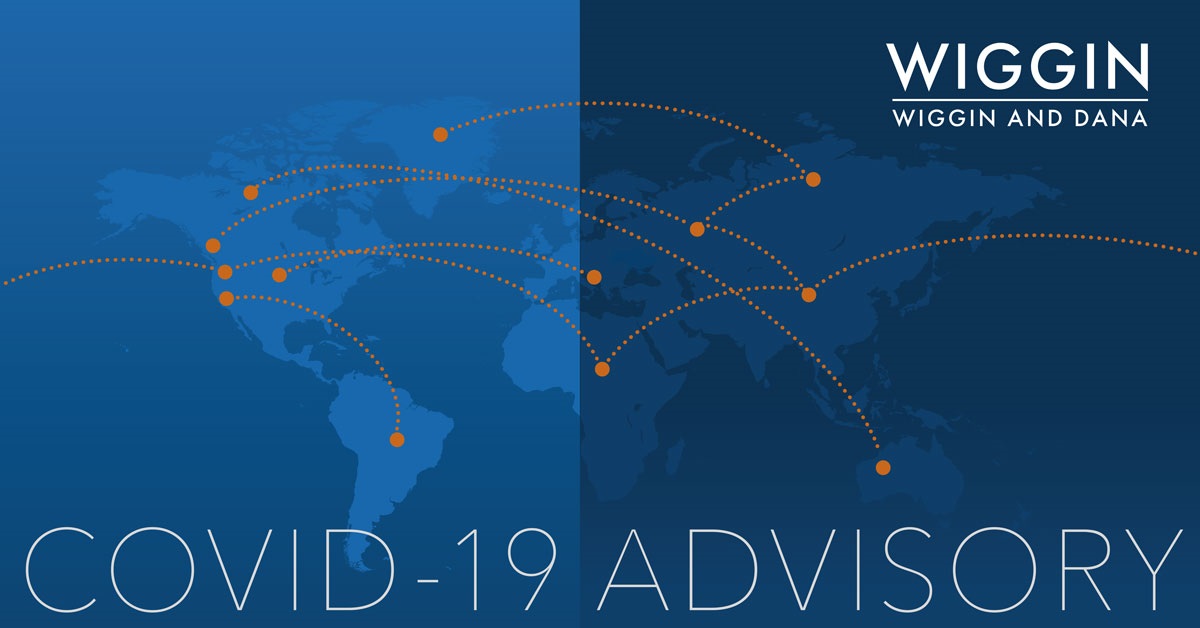COVID-19 Client Resources and Updates

Connecticut Executive Order 7H
On Friday, March 20, Connecticut Governor Ned Lamont issued Executive Order 7H in response to the deepening COVID-19 Pandemic. Order 7H requires all “non-essential” businesses and non-profits to reduce the number of employees they have working on-site at a workplace to zero, starting at 8 p.m. on Monday, March 23, and running through April 22 (though the length of time Order 7H is in place may be shortened or lengthened, depending on the changing circumstances).
This means that all Connecticut businesses (except specific types of businesses that were previously ordered closed in Connecticut, such as dining-in restaurants, movie theaters and barbershops) have the workday on Monday, March 23, to have employees come to their workplace as usual and prepare to telecommute in the future, if that is possible. After Monday evening, however, only “essential” businesses should have employees on site.
Also starting on March 23 at 8 p.m., Order 7H requires all businesses and non-profits in Connecticut to have their employees telecommute “to the maximum extent possible.” This admonition presumably applies to the “essential” businesses that will still be permitted to have employees come to a worksite. So even if your business is “essential,” only employees who cannot work from home will be permitted to come to the worksite.
Order 7H lists many types of businesses that are deemed “essential” for this purpose. In addition to the obvious businesses that first come to mind as “essential,” such as supermarkets and health care facilities, “essential” business include, but are not limited to:
- Utilities
- Military contractors
- Shipping services
- Insurance companies
- Financial institutions
- Construction
- News media
Order 7H further requires that the Connecticut Department of Economic and Community Development (“DECD”) issue further guidance defining what is an “essential” business by Sunday, March 22, at 8 p.m.
Any business that does not qualify as “essential” under any of these categories may request an opinion from DECD that it is nonetheless “in the best interest of the state to have the workforce continue at full capacity to properly respond to this emergency.”
While it is not yet clear what penalties can be imposed for violations of Order 7H, we understand that violations of the Executive Order would be subject to criminal sanctions, including as possible felonies. Clarification of this point will likely be provided in the coming DECD guidance.
We are and will continue to be available to work with our clients to help them assess whether or not their business qualifies as “essential” under the terms of Order 7H, whether to apply to DECD for “essential” status, and how the terms of the Executive Order apply to them – whether they are deemed to be non-essential or essential.
We are also available to consult and advise regarding similar orders imposed on workplaces in other states, including New York, which is imposing a similar ban on “non-essential” businesses having employees work on-site starting on Sunday evening, one day earlier than in Connecticut.
New York has already issued guidance defining what is an “essential” business, and has also allowed non-essential businesses to have a single employee come to the office. New York has also clarified that if a business has a division that performs “essential” functions and a division that only performs “non-essential” functions, employees may only work on site at the division performing “essential” work.
Please contact Paul Tuchmann at 203.498.4336, or your Wiggin and Dana attorney, if you have any questions.
Visit Wiggin and Dana’s COVID-19 Resource Center here for additional publications and helpful links on multi-disciplinary topics that are relevant during the current COVID-19 global pandemic.
